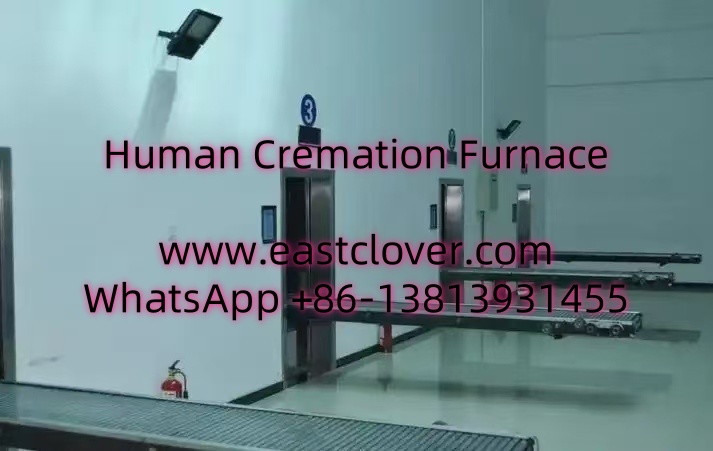Introduction
Accra, the bustling capital of Ghana, faces a growing challenge: managing mortality during public health crises and natural disasters. Overcrowded cemeteries, limited infrastructure, and cultural burial practices have strained the city’s ability to handle sudden surges in deaths. In response, an innovative solution has emerged—mobile human cremation furnaces. These portable, high-efficiency systems are redefining how Accra addresses emergencies, offering a blend of speed, dignity, and environmental sustainability. This news explores the role of mobile cremation technology in transforming crisis management and its implications for public health and urban resilience.
The Need for Innovation in Accra
Accra’s population of over 2.5 million people faces compounding pressures from rapid urbanization, climate-related disasters, and disease outbreaks. Traditional burial grounds are nearing capacity, and during epidemics like cholera or COVID-19, the city’s mortality response systems risk collapse. Key challenges include:
- Overcrowded Cemeteries: Burial space is scarce, leading to improper interments and environmental contamination.
- Public Health Risks: Delays in body disposal during outbreaks can escalate disease transmission.
- Cultural Sensitivities: Prolonged storage of bodies conflicts with Ghanaian traditions emphasizing swift burial.
Mobile cremation furnaces address these issues by providing decentralized, on-demand capacity to manage fatalities with minimal infrastructure.
How Mobile Cremation Furnaces Work
These modular systems are designed for rapid deployment and scalability. Key features include:
- Portability: Mounted on trailers or shipping containers, they can be transported to disaster zones or overcrowded hospitals.
- High-Temperature Efficiency: Operating at 800–1,000°C, they reduce human remains to ashes within 90 minutes, minimizing energy use.
- Emission Control: Advanced filters capture particulate matter and gases, addressing air quality concerns.
- Dignified Processing: Units include privacy screens and modular chambers to respect cultural and religious practices.
Local authorities and NGOs can activate these units during emergencies, ensuring timely, respectful, and hygienic management of the deceased.
Impact on Public Health and Crisis Response
Mobile cremation furnaces have already demonstrated their value in Accra:
- Reduced Disease Spread: During a 2023 cholera outbreak, mobile units processed over 200 bodies in two weeks, preventing contamination of water sources.
- Environmental Sustainability: Cremation reduces land use pressures and avoids groundwater pollution from traditional burials.
- Crisis Flexibility: Units were deployed within hours of a 2024 flood disaster, supporting overwhelmed mortuaries.
Community leaders have praised the technology for balancing public health needs with cultural respect, as ashes can be returned to families for traditional rites.
Case Study: COVID-19 Pandemic
At the height of the COVID-19 pandemic, Accra’s mortality rate spiked by 40%. Morgues reached 180% capacity, and burial delays sparked public unrest. The city’s emergency response team deployed six mobile furnaces at key hospitals, which:
- Processed 1,200 bodies in six months, easing pressure on strained facilities.
- Reduced infection risks for healthcare workers through contactless operation.
- Provided families with sealed ash containers, enabling safe memorials amid lockdowns.
This intervention highlighted the furnace’s role as a “force multiplier” in crisis logistics.
www.southclover.com
Mobile cremation furnaces represent a paradigm shift in how cities like Accra approach mortality management. By combining rapid deployment, environmental safeguards, and cultural adaptability, this technology strengthens urban resilience against disasters and epidemics. As climate change and population growth intensify pressures on Accra, scalable solutions like these will prove critical to safeguarding public health and human dignity. Future implementations could integrate solar power and AI-driven logistics for even greater efficiency, setting a precedent for crisis response worldwide.
FAQs
1. What is a mobile cremation furnace?
A portable, high-temperature incineration system designed to safely and efficiently process human remains during emergencies.
2. Why does Accra need this technology?
Overcrowded cemeteries, disease outbreaks, and disaster-related fatalities overwhelm traditional burial systems, requiring agile alternatives.
3. Are mobile furnaces environmentally safe?
Modern units include scrubbers and filters to minimize emissions, adhering to WHO air quality guidelines.
4. How do they respect cultural practices?
Families receive ashes for traditional ceremonies, and units operate with privacy screens to maintain dignity.
5. Can this model work in other cities?
Yes—urban centers facing similar challenges in Africa and beyond are exploring replicating Accra’s approach.

Comments are closed